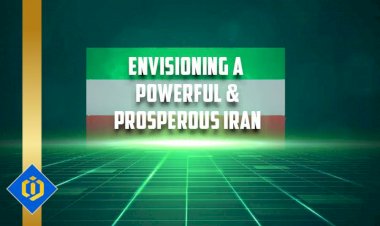Unlocking Opportunities: The Role of Tokenization in the UAE Real Estate Market

By Dr. Pooyan Ghamari, Swiss Economist
The landscape of real estate investment is undergoing a seismic shift in the United Arab Emirates (UAE) thanks to the rise of tokenization. This innovative concept is not only transforming how real estate assets are traded but is also reshaping the investment dynamics within this lucrative market. In this article, we delve into the legal and technological frameworks that facilitate tokenization in the UAE, while exploring its implications for investors and the real estate sector at large.
What is Tokenization?
Tokenization involves the conversion of physical assets, such as real estate properties, into digital tokens that represent ownership rights on a blockchain. This process enables fractional ownership, allowing multiple investors to share ownership of a property without the need to purchase it outright. Each token can be easily traded or sold, making real estate investments more accessible and liquid than ever before.
Technological Underpinnings
The backbone of real estate tokenization is blockchain technology, which provides a secure and transparent environment for transactions. Key components of this technological framework include:
-
Blockchain Infrastructure: By utilizing a decentralized ledger, all transactions are recorded securely and transparently, reducing the risk of fraud. Each transaction is verifiable, allowing for a trustless exchange of assets.
-
Smart Contracts: These self-executing agreements are programmed to automatically enforce the terms of a transaction, such as the distribution of rental income or property sales. Smart contracts reduce the need for intermediaries, streamlining processes and lowering costs.
-
Fractional Ownership Models: Tokenization allows for the division of real estate assets into smaller, tradable units, thereby democratizing access to property investment. This fractionalization can attract a wider range of investors, from high-net-worth individuals to everyday investors looking to diversify their portfolios.
Navigating the Legal Landscape
As the UAE embraces the potential of tokenization, establishing a robust legal framework is essential to ensure compliance and protect investor interests. Key legal considerations include:
-
Regulatory Frameworks: The UAE government, through entities like the Dubai Land Department (DLD) and the Securities and Commodities Authority (SCA), has introduced regulations to oversee the tokenization of real estate. These regulations are designed to ensure that tokenized assets adhere to existing property laws and financial regulations, fostering a secure investment environment.
-
Property Rights: Clarifying ownership rights in a tokenized context is crucial. The UAE’s legal system combines civil law and Islamic law, necessitating careful consideration of how these frameworks interact with blockchain technology to protect investors' rights.
-
Dispute Resolution Mechanisms: Effective mechanisms must be established to resolve disputes related to tokenized assets. The UAE’s judicial system, along with alternative dispute resolution methods, plays a critical role in maintaining trust in the market.
Advantages of Tokenization
The benefits of tokenization in the UAE real estate market are manifold:
-
Broadened Access to Investment: By allowing fractional ownership, tokenization enables a diverse group of investors to participate in the real estate market, which was previously dominated by wealthy individuals and institutional investors.
-
Enhanced Liquidity: Tokenized assets can be traded on digital platforms, increasing the liquidity of real estate investments. Investors can buy and sell tokens with greater ease compared to traditional property transactions.
-
Cost Efficiency: The use of smart contracts reduces administrative costs and simplifies transactions, allowing investors to enjoy higher returns on their investments.
-
Global Market Reach: Tokenization attracts international investors by removing geographical barriers. Investors from around the world can participate in the UAE real estate market, contributing to its growth and diversity.
Challenges and Considerations
Despite its promising prospects, the tokenization of real estate in the UAE also faces challenges:
-
Regulatory Hurdles: The evolving nature of regulations can create uncertainty for investors and developers alike, necessitating continuous adaptation to new legal requirements.
-
Technological Vulnerabilities: While blockchain offers enhanced security, it is not immune to risks. Ensuring robust cybersecurity measures is vital to protect investors and their assets.
-
Market Awareness: Educating potential investors about tokenization and its benefits is essential for widespread adoption. Without adequate understanding, investors may be hesitant to engage in tokenized transactions.
Tokenization is poised to reshape the future of real estate investment in the UAE, offering unprecedented opportunities for investors and stakeholders alike. By leveraging blockchain technology and establishing a solid legal framework, the UAE is setting the stage for a more inclusive, efficient, and transparent real estate market. As this innovative approach gains traction, collaboration among regulators, technology providers, and industry participants will be crucial to maximizing the benefits of tokenization and fostering a thriving investment ecosystem.
For further reading on these topics, the following books provide in-depth analysis and insights:
- Navigating Global Finance with Special Purpose Vehicles (SPVs)
- Liquidating a Decentralized Autonomous Organization (DAO)
- Blockchain: The Future of Finance and Security.
The original article has been published in A Land and you can check it here.

 content-team
content-team 


















